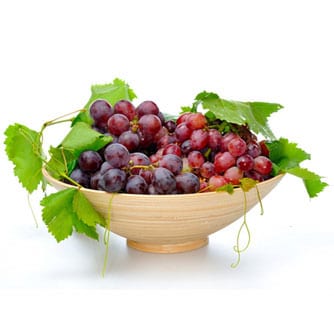Ultraviolet (UV) rays emitted by the sun are the leading environmental cause of skin complaints, causing skin cancer, sunburn and solar erythema, as well as premature aging of the dermis and epidermis. UV rays act on the skin by activating reactive oxygen species (ROS). These compounds in turn oxidise macromolecules such as lipids and DNA, stimulating certain reactions and enzymes (JNK and p38MAPK) which cause cell death. Marta Cascante, from the University of Barcelona (Spain), and colleagues have found that polyphenolic substances extracted from grapes (flavonoids) can reduce the formation of ROSs in human epidermis cells that have been exposed to long-wave (UVA) and medium-wave (UVB) ultraviolet radiation. Reporting that polyphenolic fractions inhibit the generation of the ROSs and, as a result, the subsequent activation of the JNK and p38 enzymes, meaning they have a protective effect against ultraviolet radiation emitted by the sun, the researchers found that the higher the degree of the flavonoids’ polymerisation and formation of compounds containing gallic acid, the greater their photoprotective capacity. The team urges that: “These encouraging in vitro results support further research and should be taken into consideration into the clinical pharmacology of plant-derived polyphenolic extracts as novel agents for skin photoprotection.”
Grapes Confer Sun Protection
Cecilia Matito, Neus Agell, Susana Sanchez-Tena, Josep L. Torres, Marta Cascante. "Protective Effect of Structurally Diverse Grape Procyanidin Fractions against UV-Induced Cell Damage and Death". Journal of Agricultural and Food Chemistry 59 (9): 4489-4495, May 2011.
RELATED ARTICLES




